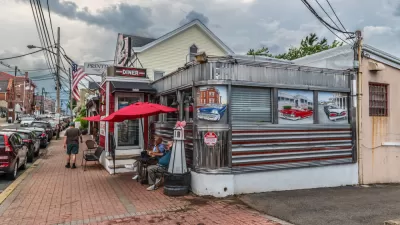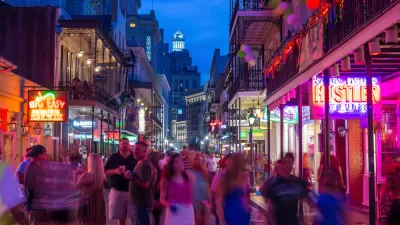Eric Fidler observes how residents of a Washington, D.C. neighborhood fight against the granting of a liquor license to a proposed restaurant, using the emotional health of school children as part of their argument.
Children in close proximity to alcohol could be cause for concern, but supporters argue that the proposed All Souls restaurant in a Washington, D.C. neighborhood should get the go-ahead anyway. The proprietor of All Souls had planned for the restaurant to serve alcohol in a location that was close to the Cleveland Elementary School, but these plans sparked a backlash from a group of protesters who believed that the school children would be negatively affected by observing the sale of alcohol.
After legal fees and discussions, the Alcoholic Beverage Control Board (ABC Board) granted All Souls the liquor license, citing a DC Code that lifts a restriction on alcohol sales within 400 feet of a school when another alcohol-vending institution is within that zone. The ABC Board further argued that not granting the license based on the idea that the sight of adult alcohol consumption would be harmful to children would require them to also ban children from being in any situation where alcohol was served, including religious ceremonies or family dinners.
As Eric Fidler points out, people will protest the grant of a new building whether the safety of children is at risk or not. He agreed with Georgetown resident Topher Matthews, who said that people will come up with reasons, such as historic preservation, to take down new construction plans. In the end, Fidler believes that the ABC Board made the right decision to grant All Souls its liquor license.
"For all the complaints about DC's regulatory bodies, the regulatory system worked rationally in this case. The board ratified the agreement with the neighbors willing to compromise. It rejected outright the protest of people who refused to believe the business should even exist."
FULL STORY: Schools and taverns can coexist

Alabama: Trump Terminates Settlements for Black Communities Harmed By Raw Sewage
Trump deemed the landmark civil rights agreement “illegal DEI and environmental justice policy.”

Planetizen Federal Action Tracker
A weekly monitor of how Trump’s orders and actions are impacting planners and planning in America.

Why Should We Subsidize Public Transportation?
Many public transit agencies face financial stress due to rising costs, declining fare revenue, and declining subsidies. Transit advocates must provide a strong business case for increasing public transit funding.

Understanding Road Diets
An explainer from Momentum highlights the advantages of reducing vehicle lanes in favor of more bike, transit, and pedestrian infrastructure.

New California Law Regulates Warehouse Pollution
A new law tightens building and emissions regulations for large distribution warehouses to mitigate air pollution and traffic in surrounding communities.

Phoenix Announces Opening Date for Light Rail Extension
The South Central extension will connect South Phoenix to downtown and other major hubs starting on June 7.
Urban Design for Planners 1: Software Tools
This six-course series explores essential urban design concepts using open source software and equips planners with the tools they need to participate fully in the urban design process.
Planning for Universal Design
Learn the tools for implementing Universal Design in planning regulations.
Caltrans
Smith Gee Studio
Institute for Housing and Urban Development Studies (IHS)
City of Grandview
Harvard GSD Executive Education
Toledo-Lucas County Plan Commissions
Salt Lake City
NYU Wagner Graduate School of Public Service





























